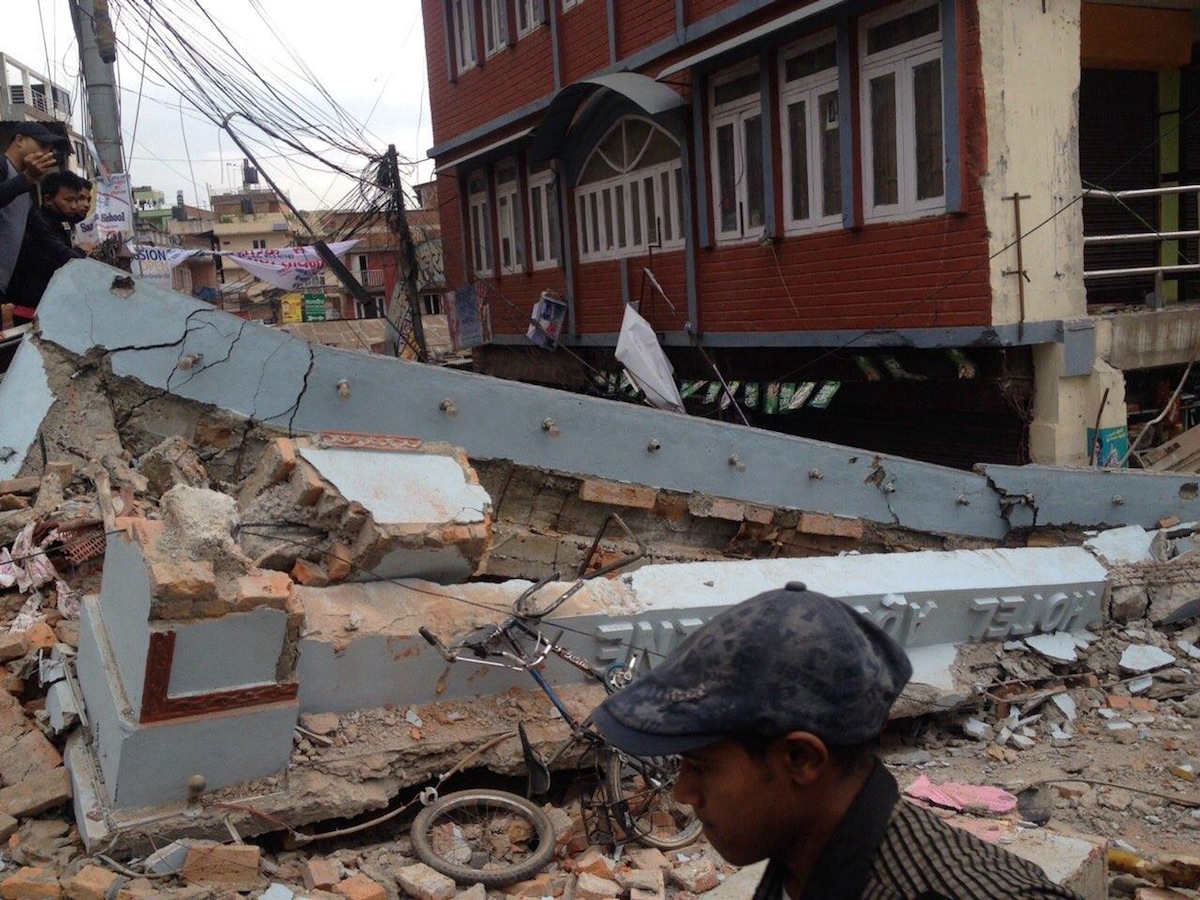The author of Nepal’s building code says the earthquake that killed more than 4,300 people and caused at least $2 billion in economic losses could have been less destructive if the code had been properly implemented and enforced.
The tragedy was predictable given the conditions of the nation’s building stock. “It was inevitable, absolutely inevitable,” Richard Sharpe told Bloomberg Business. Sharpe is a New Zealand earthquake engineer who led a team that formulated Nepal’s only set of building standards 20 years ago.
The earthquake struck during a period following a decade-long Maoist guerrilla war that preceded years of political struggles following the removal of a 240-year-old monarchy in 2008. The unrest made code implementation and enforcement much more difficult.
What’s more, the capital of Kathmandu has expanded to an old lake bed south of the city— an area that is unstable and susceptible to liquefaction—in recent years. Buildings have not been designed to cope with those conditions.
Related Stories
| Jun 21, 2012
Brazilian engineering/construction firm Odebrecht sues Florida over ban on companies doing business in Cuba
Odebrecht Construction Inc., a Brazilian engineering and construction company, is suing the State of Florida over a new law that bans governments from hiring companies with business ties to Cuba.
| Jun 21, 2012
String of shattered glass balcony panels prompts call for code reform in Ontario
Since last summer, glass balconies have shattered at 13 different buildings in Toronto.
| Jun 21, 2012
California adds window film to building code
California is the first state to add window film into its building code. Window film, a polymer material, offers cost-effective energy savings.
| Jun 21, 2012
New ISO standard to improve environmental management of concrete
A new ISO standard will help the construction industry better manage the environmental impacts of concrete.
| Jun 21, 2012
On net-zero projects, Building Teams will be held accountable for energy-efficiency performance
The building team will be held accountable for how net-zero energy buildings perform two, five, and maybe ten years after completion.
| Jun 14, 2012
USGBC co-founder launches rating system for building product manufacturers
U.S. Green Building Council co-founder David Gottfried’s new venture, Regenerative Ventures, has established a rating system for building product manufacturers.
| Jun 14, 2012
Green standard set for single-ply roofing membrane
A sustainability standard has been established for single-ply roofing membranes used on commercial buildings.
| Jun 14, 2012
Minnesota Vikings stadium plan gets legislative go-ahead
Legislation that approved the construction of a new billion dollar stadium for the Minnesota Vikings passed the Minnesota legislature.
| Jun 14, 2012
Report alleges New York’s prevailing construction wages are miscalculated, costing billions
A miscalculation in how prevailing wages are calculated in New York reportedly costs the state $3 billion a year in public-infrastructure projects.











